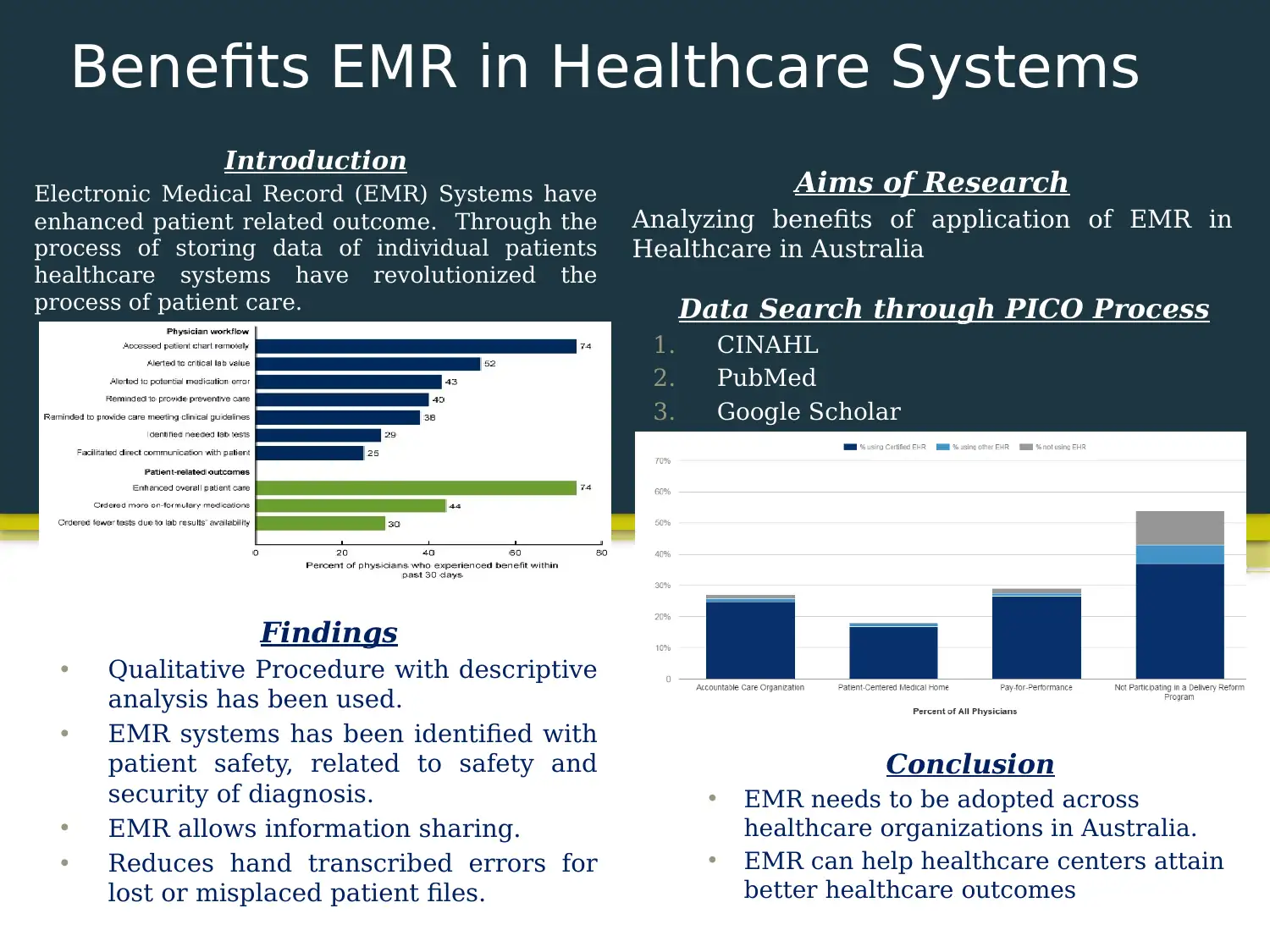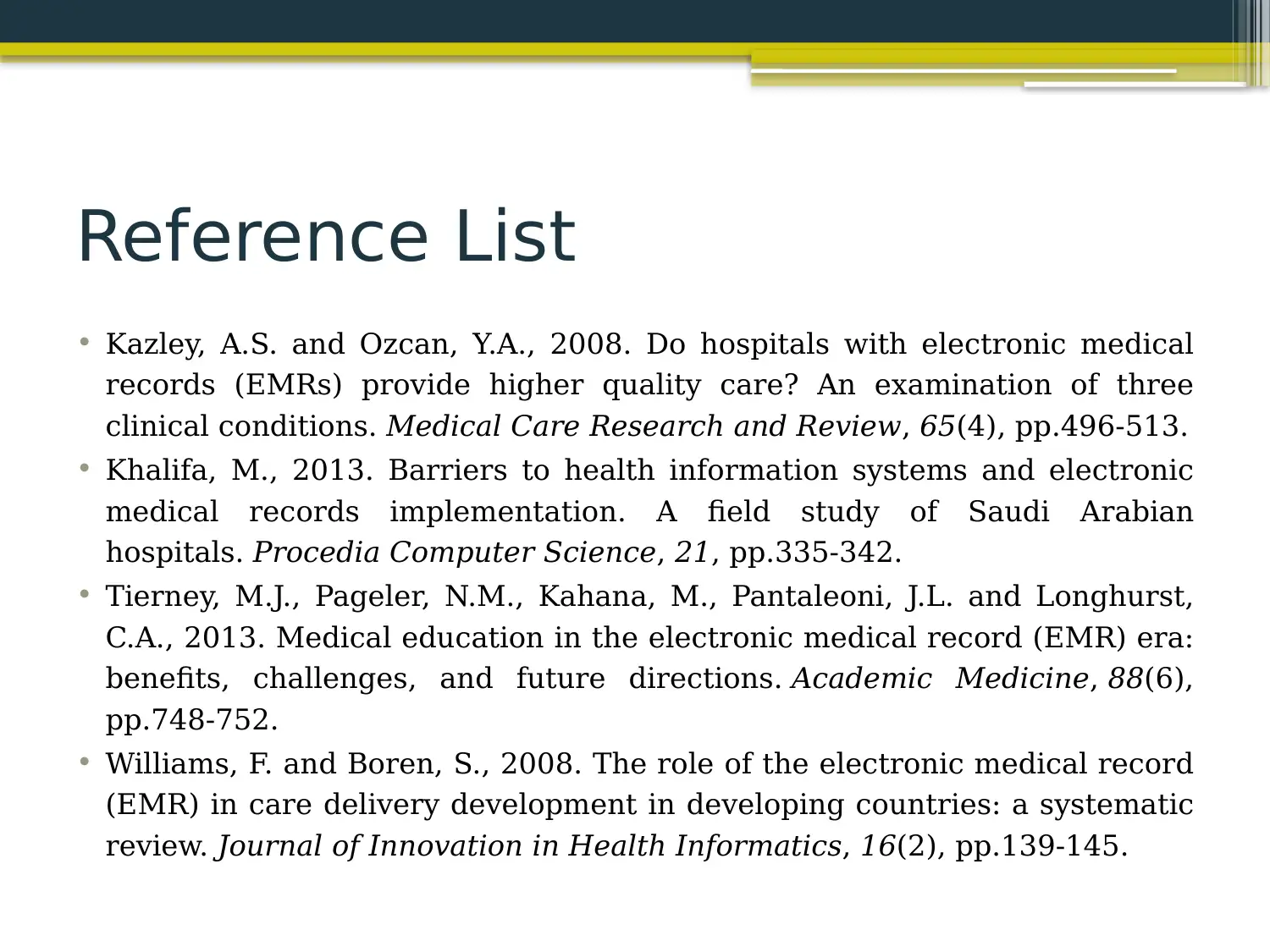NUR131 Assessment: Benefits of EMR in Healthcare Systems
VerifiedAdded on 2023/06/09
|2
|320
|157
Report
AI Summary
This report explores the benefits of Electronic Medical Record (EMR) systems in healthcare, particularly in Australia. It aims to analyze these benefits through a PICO-based data search using CINAHL, PubMed, and Google Scholar. The findings, derived from a qualitative descriptive analysis, highlight EMR's role in enhancing patient safety, ensuring data security, facilitating information sharing, and reducing transcription errors. The report concludes that adopting EMR systems across Australian healthcare organizations is crucial for achieving better healthcare outcomes. The reference list includes studies on EMR implementation barriers, the role of EMR in medical education, and its impact on care delivery in developing countries. Desklib offers a variety of study tools and resources for students.
1 out of 2








![[object Object]](/_next/static/media/star-bottom.7253800d.svg)